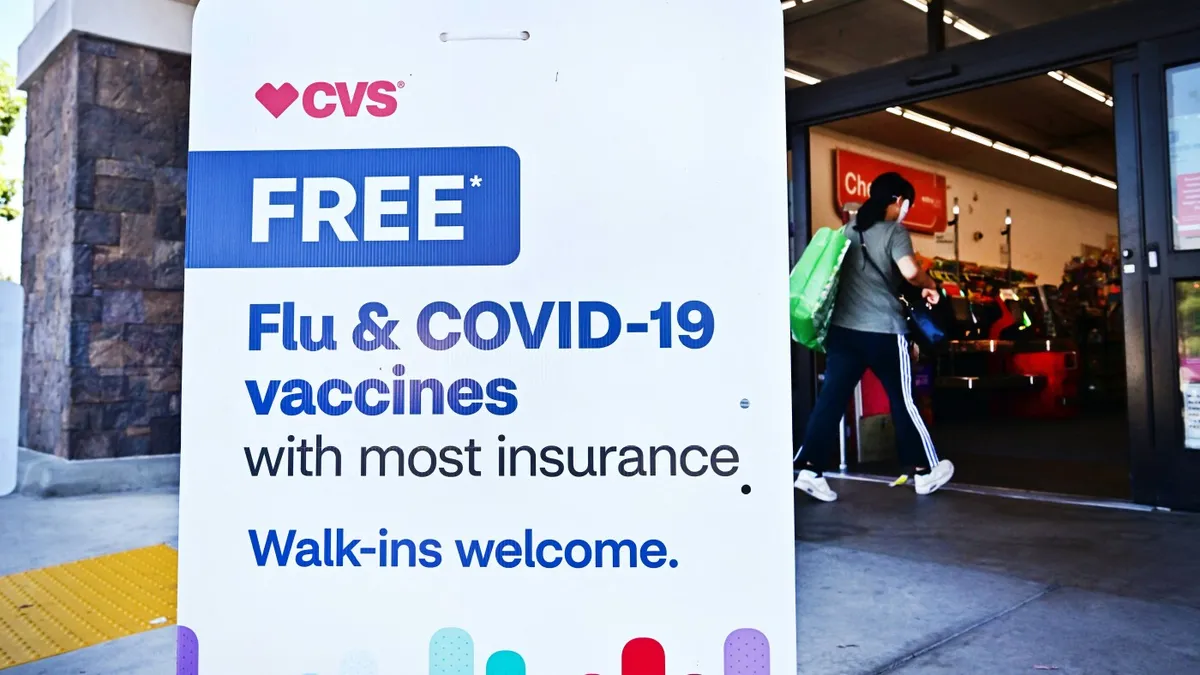
The Centers for Disease Control and Prevention (CDC) has made headlines by accepting new guidelines for the updated COVID-19 vaccines. These controversial changes, announced on Monday, could complicate access to vaccinations this winter compared to previous years. Acting CDC Director Jim O'Neill approved the recommendations from an Advisory Committee on Immunization Practices, appointed by Health Secretary Robert F. Kennedy Jr., which met in September.
Unlike past years, the new guidelines now mandate that individuals consult a healthcare provider—such as a doctor or pharmacist—about the risks and benefits of vaccination prior to receiving the shot. This process is termed shared decision-making, which aims to empower patients but may inadvertently create additional barriers to vaccination.
O'Neill stated, "Informed consent is back." This marked a significant shift from the CDC's previous blanket recommendation for ongoing COVID-19 boosters, which discouraged healthcare providers from discussing individualized risks and benefits. Critics, however, have challenged O'Neill's assertion. Dorit Reiss, a vaccine policy expert at the University of California, San Francisco, argued that healthcare providers have always been required to obtain informed consent and that routine recommendations do not prevent discussions about vaccination risks.
Many experts fear that the new guidelines could undermine public confidence in vaccines. Dr. Tina Tan, president of the Infectious Diseases Society of America, expressed concern that these claims could create confusion and distrust among the public, ultimately increasing the risk of vaccine-preventable diseases.
In addition to the changes regarding COVID-19, the CDC has also revised its recommendations for childhood vaccinations against measles, mumps, rubella, and chickenpox. Experts like Dorit Reiss have voiced worries that these alterations could further decrease vaccination uptake among children, particularly as the country experiences outbreaks of diseases like measles and pertussis.
The newly approved guidelines will ensure continued insurance coverage for COVID-19 vaccines, allowing pharmacists across the U.S. to continue administering them. However, they also complicate access to combination vaccines, which protect against multiple diseases—an option some parents prefer.
In previous years, individuals aged six months and older could easily access COVID-19 vaccines for free by simply visiting a pharmacy or clinic. However, accessibility has diminished since August, following the FDA's approval of updated vaccines exclusively for individuals at elevated risk of severe disease. This shift was prompted by concerns from top Trump administration health officials regarding vaccine safety and effectiveness, despite substantial evidence supporting their safety.
The changes have resulted in widespread frustration and confusion among the public, particularly in states like Georgia and Utah, where obtaining a prescription for a shot has become necessary for some individuals. Adding to the chaos, Kennedy has publicly stated that the government no longer recommends vaccines for pregnant women and healthy children, despite the CDC listing pregnancy as a risk factor for severe COVID-19 outcomes.
While the advisory committee recently voted to recommend COVID-19 vaccines for anyone six months and older, the requirement for shared decision-making introduces a new hurdle. Patients must now engage in discussions about their individual risks before vaccination. Some healthcare providers remain uncertain about how to navigate these new guidelines, leading to potential hesitancy in administering shots.
In a further twist, O'Neill accepted the panel's recommendation to ban the MMRV combination vaccine for children under four. This change aims to mitigate the risk of fever-related seizures associated with the combination shot, which has been in use for decades. Instead, young children will now receive separate vaccinations for measles, mumps, and rubella.
Dr. Katrina Kretsinger, a former medical epidemiologist at the CDC, criticized the decision, stating that it effectively removes parental choice regarding vaccination options. The transition may also lead to temporary shortages of the individual vaccines as manufacturers adjust to the new demand.
In an unexpected move, O'Neill called for the separation of the MMR vaccine into three individual shots. This decision has sparked significant backlash, with experts asserting that combining vaccines is beneficial for ensuring comprehensive immunization. Merck, the manufacturer of the MMR vaccine, stated that there is no scientific evidence supporting the benefits of separating the combination vaccine and emphasized that combination vaccines improve overall vaccination rates among children.
In conclusion, the CDC's acceptance of the new COVID-19 vaccine guidelines and changes to childhood vaccination policies represents a significant shift in public health strategy. While intended to enhance informed consent, these changes may complicate access to vital vaccinations, increase public confusion, and potentially decrease vaccination rates. As the winter season approaches, the implications of these decisions will be closely monitored by health experts and policymakers alike.